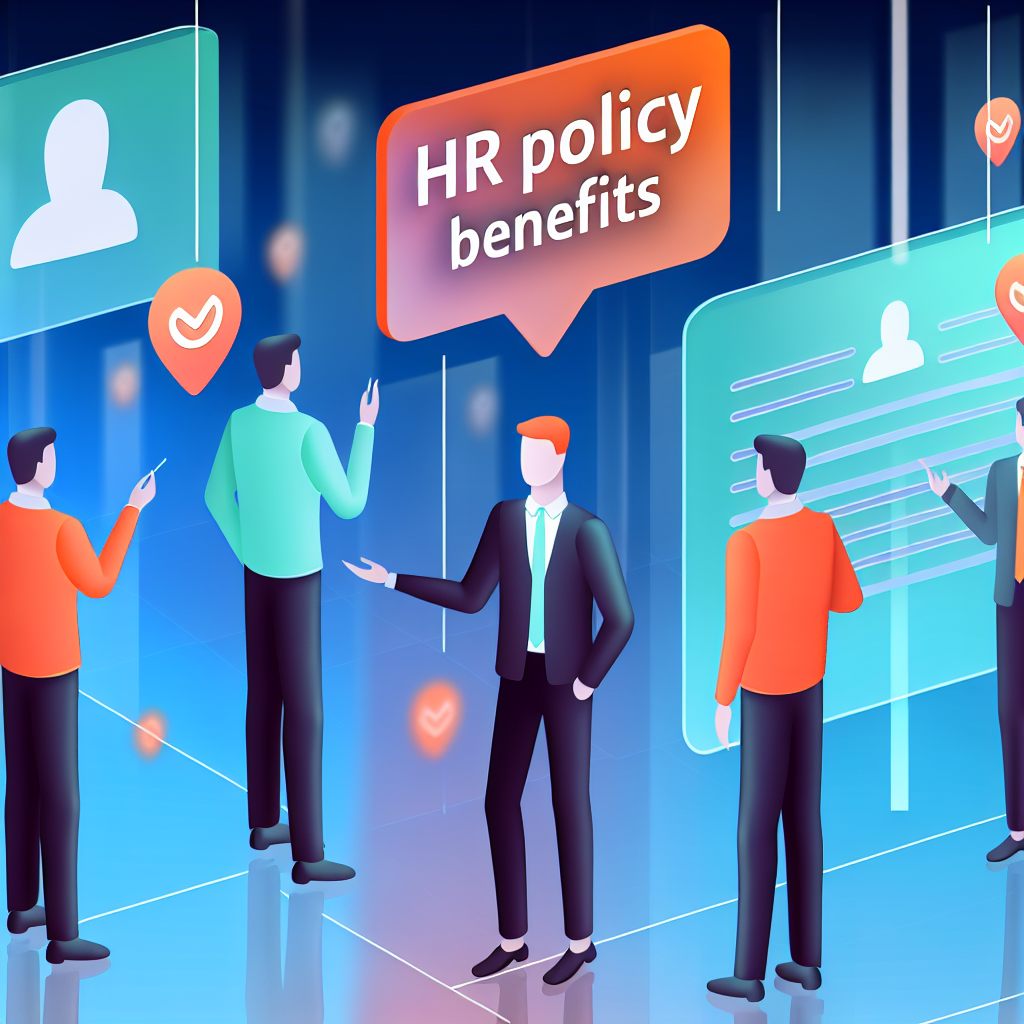
Introduction
As human resource professionals, we understand the critical role that effective HR policies play in the success of an organisation. These essential guidelines govern employee relations, benefits, and conduct, providing a framework for consistent and fair treatment of workers. In today’s dynamic workforce climate, the importance of strong HR policies cannot be overstated. They not only foster a productive work environment but also serve as a safeguard against legal challenges and reputational harm.
Significance of HR Policies
Let’s delve into the various aspects that highlight the significance of HR policies in organisations.
1. Consistency and Fairness
HR policies are pivotal in guaranteeing that employees are treated with fairness and consistency across the board. This minimises the risk of discrimination and biases. By providing clear guidelines for decision-making processes, policies ensure that actions are based on established criteria rather than personal inclinations.
2. Legal Compliance
In many jurisdictions, laws mandate that organisations maintain specific HR policies. Compliance with these regulations mitigates the risk of legal disputes and penalties, allowing the organisation to avoid costly litigation.
3. Employee Engagement and Retention
Clearly articulated HR policies can significantly boost employee engagement and satisfaction. When workers comprehend the expectations and procedures within their environment, they are more likely to feel motivated and committed to their roles, ultimately leading to higher retention rates.
4. Risk Management
Having established HR policies can significantly reduce risks associated with various workplace issues, including harassment and safety concerns. By proactively outlining procedures to address such situations, organisations can protect themselves from costly lawsuits and detrimental reputational damage.
5. Operational Efficiency
Standardised processes delineated in HR policies can enhance administrative efficiencies. This allows HR departments to redirect their focus onto more strategic initiatives that drive organisational success.
Current Trends in HR Policies
The landscape of HR policies is continually evolving, influenced by modern workplace dynamics and employee expectations. Let’s explore some of the latest trends shaping the development and implementation of HR policies.
1. Digitalisation of HR Policies
The shift toward digital technologies has led many organisations to migrate their HR policies online. This transition not only makes policies more accessible to employees but also simplifies the updating process, ensuring that important information is readily available.
2. Employee Wellness Initiatives
A growing emphasis on employee wellness is becoming a staple in modern HR policies. Initiatives that support mental health, flexible working, and employee assistance programmes (EAPs) are increasingly being incorporated, promoting a balanced work-life dynamic.
3. Diversity, Equity, and Inclusion (DEI) Practices
Organisations are recognising the need to focus on DEI within their HR policies. This involves formulating specific guidelines for recruitment, implementing training programmes that emphasise diversity, and establishing avenues for reporting incidents involving bias or harassment. These practices foster an inclusive work environment.
Key Benefits of Established HR Policies
Implementing comprehensive HR policies yields numerous benefits that extend beyond compliance. Here are some advantages organisations can enjoy:
1. Enhanced Employee Experience
HR policies that provide clarity and support mechanisms contribute to an improved work atmosphere, significantly enhancing the employee experience.
2. Better Decision-Making
With established policies in place, managers can base their decisions on objective criteria, resulting in fairer outcomes and a more equitable work environment.
3. Reduced Conflict
Clear policies delineating expectations and procedures can diminish conflicts between staff members and management, fostering a more harmonious workplace.
4. Improved Communication
By consistently updating and openly communicating HR policies, organisations build trust and rapport between employees and management, cultivating a collaborative culture.
5. Increased Efficiency
Standardised processes streamline administrative tasks, allowing HR teams to concentrate on strategic priorities that contribute to organisational growth.
Implementing Effective HR Policies
Creating effective HR policies is not a one-size-fits-all approach. Here are some steps to consider when developing policies for your organisation:
1. Assessing Organisational Needs
Before formulating HR policies, conduct a thorough analysis of your organisation’s unique needs and the challenges it faces. Engaging with employees and stakeholders can provide valuable insights that inform policy development.
2. Collaborating Across Departments
Collaboration between HR and other departments is essential for creating comprehensive policies that address the specific needs of all teams. Include input from legal, finance, and operations to ensure that policies are effective and compliant.
3. Drafting Clear and Comprehensive Policies
When drafting policies, prioritize clarity and comprehensiveness. Use straightforward language to communicate expectations effectively. Additionally, define key terms to eliminate ambiguity.
4. Training and Communication
Once policies have been established, training employees on these guidelines is crucial. Use multiple communication channels—such as workshops, emails, and online resources—to ensure that all staff are familiar with the policies.
5. Regular Review and Updates
Employing a schedule for regular review of HR policies is vital. As legal regulations change and workforce dynamics evolve, organisations must adapt their policies accordingly to remain relevant and effective.
Conclusion
In summary, HR policies serve as a foundation for managing employee relations, conduct, and benefits, contributing to consistency, fairness, and legal compliance within the workplace. Additionally, integrating current trends such as digitalisation, wellness initiatives, and DEI practices underscores the growing importance of adaptive HR policies. By implementing robust strategies and remaining responsive to changes, organisations can foster a constructive work environment that benefits both employees and the overall organisation.
For more in-depth insights on crafting effective HR policies, refer to the Knowledge Hub article on HR policies.
Vadim Kouznetsov is a distinguished entrepreneur and the visionary founder and CEO of JobXDubai.com, the UAE’s rapidly expanding job board. Renowned for his expertise in bridging the gap between job seekers and employment opportunities, Vadim has become a leading authority in the recruitment and job market of Dubai.
